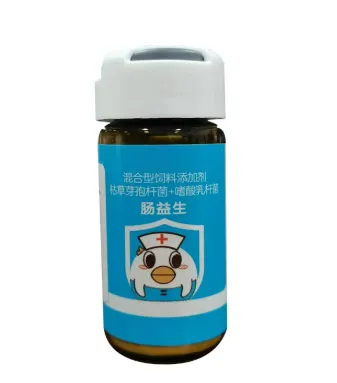
Apr . 09, 2025 09:43 Ku laabo liiska
A Beginner’s Guide to Pigeon Medications
Raising pigeons can be a rewarding experience, but keeping them healthy requires knowledge about the right drugs for birds. Whether treating injuries, infections, or eye diseases, first-time pigeon owners must understand how to use medicine for birds injury effectively. This guide simplifies the basics of medicine for injured birds and the proper application of medicine for pigeon eye infection to ensure your birds receive the best care possible.
Understanding Basic Pigeon Medications
Just like any other pet, pigeons are susceptible to injuries and infections. Knowing when and how to administer medicine for birds injury can make a difference in their recovery.
Common Pigeon Medications and Their Uses:
- Antibiotics:Used for bacterial infections affecting the respiratory or digestive systems.
- Pain Relievers:Help reduce discomfort in injured pigeons.
- Antiparasitic Drugs:Essential for treating internal and external parasites.
- Eye Drops:Specific medicine for pigeon eye infection helps with inflammation and bacterial infections.
- Wound Care Solutions:Antiseptics and healing ointments aid in the treatment of wounds.
Having these essential drugs for birds in your pigeon care kit ensures you are prepared for any health issue.
How to Treat an Injured Pigeon
Injuries in pigeons can result from fights, predators, or accidents. Promptly using medicine for injured birds can help prevent infections and complications.
Steps for Treating an Injured Pigeon:
- Assess the Injury:Check for visible wounds, bleeding, or broken bones.
- Clean the Wound:Use a mild antiseptic solution to clean cuts and scratches.
- Apply Medicine for Birds Injury:Use an appropriate ointment or powder to promote healing.
- Provide a Safe Space:Keep the pigeon in a quiet, stress-free area while it recovers.
- Monitor for Infections:Look for signs of swelling, pus, or unusual behavior that may indicate a worsening condit
Using the right medicine for injured birds ensures a faster and smoother recovery.
Recognizing and Treating Pigeon Eye Infections
Eye infections are common in pigeons, often caused by bacteria, dust, or injuries. Left untreated, they can lead to vision problems.
Symptoms of Pigeon Eye Infections:
- Swelling and redness around the eye
- Excessive tearing or discharge
- Cloudiness or difficulty keeping the eye open
- Rubbing the eye against objects
How to Treat Eye Infections:
- Clean the Eye Gently:Use a saline solution or sterile water.
- Apply Medicine for Pigeon Eye Infection:Use prescribed eye drops or ointments.
- Monitor the Infection:If symptoms persist, consult a specialist for stronger treatment.
Early treatment with medicine for pigeon eye infection prevents long-term damage and discomfort.
While treating pigeons is necessary when they get sick, prevention is always better than cure. Regular health care reduces the need for drugs for birds.
Tips for Preventing Pigeon Illnesses:
- Keep their living area clean and dryto reduce bacteria buildup.
- Provide a nutritious dietto strengthen their immune system.
- Usepreventive medications such as dewormers and vitamins.
- Check your pigeons regularlyfor any signs of illness or injury.
By following these simple steps, pigeon owners can minimize the need for medicine for birds injury and other treatments.
A Beginner’s Guide to Pigeon Medications FAQs
How do I know if my pigeon needs medicine?
If your pigeon shows signs of injury, infection, or unusual behavior like not eating, it may need treatment.
Can I use human medicine for birds?
No, human medications can be toxic to birds. Always use drugs for birds specifically designed for them.
How often should I check my pigeons for health problems?
A daily visual check is ideal, with a more thorough health inspection once a week.
What should I do if my pigeon’s eye infection doesn’t improve?
If symptoms persist after using medicine for pigeon eye infection, consult an avian veterinarian for a stronger prescription.
Where can I buy high-quality pigeon medicine?
For top-quality medicine for birds injury, eye infections, and general pigeon health, check out our store today!

-
When to Use Aquarium Medication for Sick Fish
WararkaJul.28,2025
-
The Importance of Balanced Pet Nutrition
WararkaJul.28,2025
-
How to Administer Pet Dewormer Safely
WararkaJul.28,2025
-
Essential Poultry Drugs for Chicken Farmers
WararkaJul.28,2025
-
Common Dog Ear Problems and Treatments
WararkaJul.28,2025
-
Best Anti Parasitic Medicine for Intestinal Parasites
WararkaJul.28,2025




